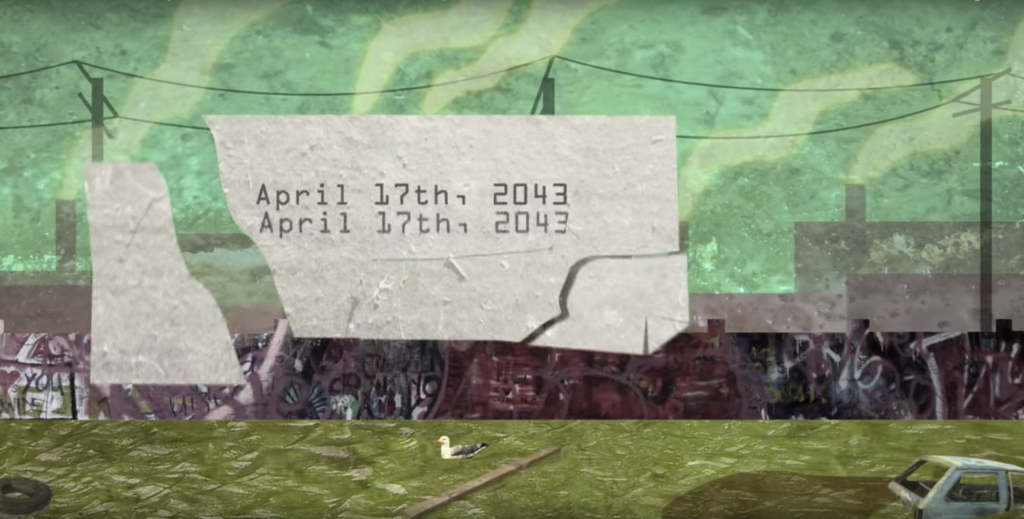Given a chance, would you want to know the exact date of your death, minus its circumstances? How do you think such information would affect you and your loved ones? Typically, curiosity is likely to drive many people to inquire about their death date, but the mere fear and thought of death at its mention would tame this same curiosity.
Human beings are subject to death. This bitter realization of our inability to achieve immortality in the near future has resorted to scientific innovations like anti-ageing technology. In Helen Phillips’ world, technology can tell people their date of death.
The Knowers by Helen Phillips Short Story Summary
In her short story The Knowers (2013), Phillips introduces an interesting futuristic situation where people can learn their date of death from the government at a small fee. The narrator, main character, and protagonist, Ellie, is among the Knowers, while her husband Tem chooses to live devoid of this knowledge. The story begins with this background information, but through excellent exposition, the author waits and teases before revealing what it means to be a knower.
Ellie is getting ready to go to the government’s office, while her husband watches her anxiously and at some point, he tries to forbid her from leaving. She’s gone for 127 minutes and when she returns, Tems declares that he doesn’t want to learn her date of death (that she just learnt at the office) and Ellie is quite relieved about this.
The couple goes on to live a fulfilling life, gets a few children and grand children, works several jobs, buys and house and so on. But through all this, Ellie’s date of death: April 17, 2043, remains etched on her mind and almost a daily reminder. When that day nears, Ellie’s sadness and panic slips through and Tems learns about her date of death too. The couple spends April 17, 2043 strolling in the mid-morning, dining, strolling some more, getting lunch, then dinner, before returning home. At 11:45pm, doubt and hope begins to kick in as Ellie thinks she could’ve confused the date digits. The story ends at 11:54; Ellie and Tems are both still alive, but can’t get ahead of themselves for there’s still six minutes till end of the day.
Soaking Into the Little Joys of Life as a Theme in Helen Phillips’ The Knowers
In the midst of all the emotions evoked throughout the story, Phillips reminds us not to forget the simple joys of life, the little things that life is made of.
Ellie’s life, from the outside, seems bland and normal.
” And so in many ways I could live a life like any other. Like Tem’s. I could go blithely along, indulging my petty concerns, lacking perspective, frequently forgetting I wasn’t immortal. Yet it would be a lie if I said a single day passed without me thinking about April 17, 2043″ – The Knowers
One question that comes to mind is our unappreciative nature that prevents us from enjoying life, even with its fleeting nature that’s amplified in the story. Ellie, describing her life, brings out this human dissatisfaction:
” It was an okay lifespan. Not enough — is it ever enough? ”
She reminds us that our focus should be on the time we spend alive and what we do then, not how and when it ends. Philips chooses to describe her main character’s life the same way even after she learns her death date. Of course it would be impossible to learn your day of death and not constantly think about it, just as Ellie describes:
” April 17, 2043: a tattoo inside my brain. “
Nevertheless, her whole life is not spent obsessing over that day. In fact, she finds numerous ways to cherish life, take risks, and find joy in small moments like ” soaping up the kids’ hair when they were tiny, walking from the parking lot to the office on a bird-studded Friday morning, smelling the back of Tem’s neck in the middle of the night.”
Among the many reasons Philips wrote this story, i think one of them is to encourage people to view the bright sides of life even while obvious of its turmoils and uncertainty. She does an excellent job of insisting this by concluding the story without mentioning Ellie’s death, even though there are six minutes still left till the end of her death day.
Do you have any literary analysis questions for your essay writing or just loved ‘The Knowers’ by Helen Phillips and wanna start a discussion? Let me know in the comment section below! 🙂
Image from Electric Literature: An Animation by Adam Thompson for Electric Literature



I have a question ma’am.
if you were tem, how would you face each day as you await for April 17, 2043 to come?
i need the answer right now ma’am hope you help me i need to enlighten.
Tem doesn’t know the exact year that his wife will die, yet he lives in fear and a lot of anxiety every April 17th. It’s only human nature.
If I were Tem, I think I would face each day with a little bit more positivity knowing that they have the gift of spending time together, for as long as they have.
what contemporary issue is explored in the story? explain,
i need to know ma’am your answer about this.
The contemporary issue explored in the story is technology. It has made it possible for people to know their exact date of death and we see how this affects individuals, families, and so on.
Hope that helps!
HI
What would say is/are the theme/s of the story? Explain and give examples from the text.
What did you dislike about this story ma’am?
Pingback: The Knowers by Helen Phillips Questions & Answers - The Literary Girl